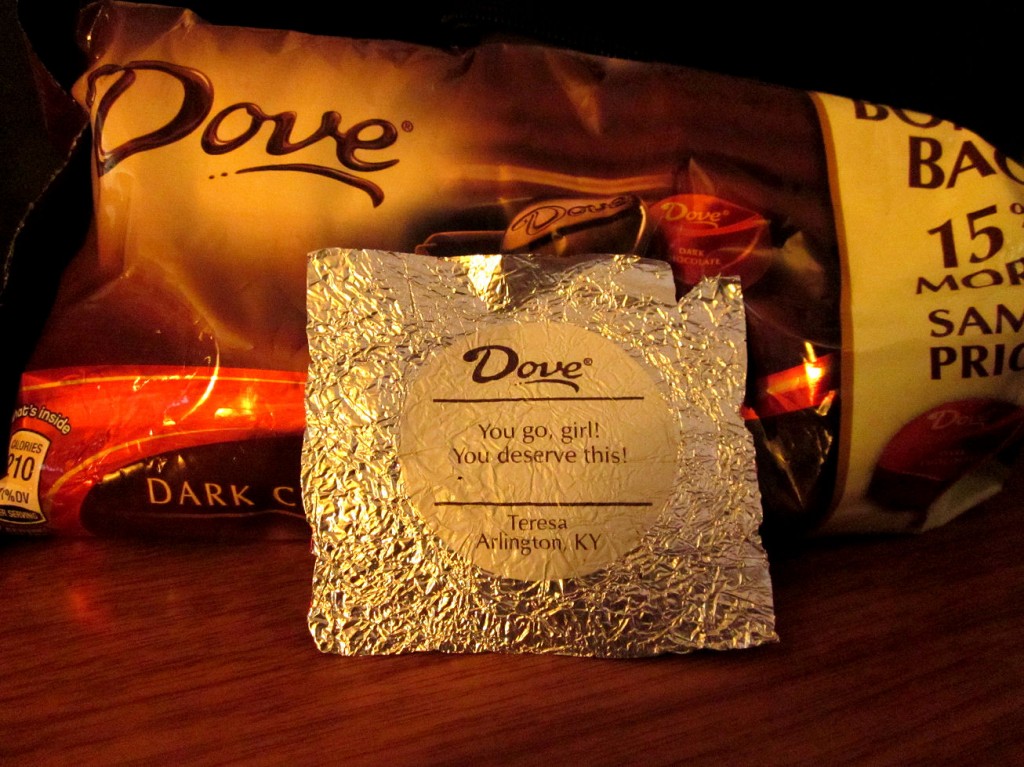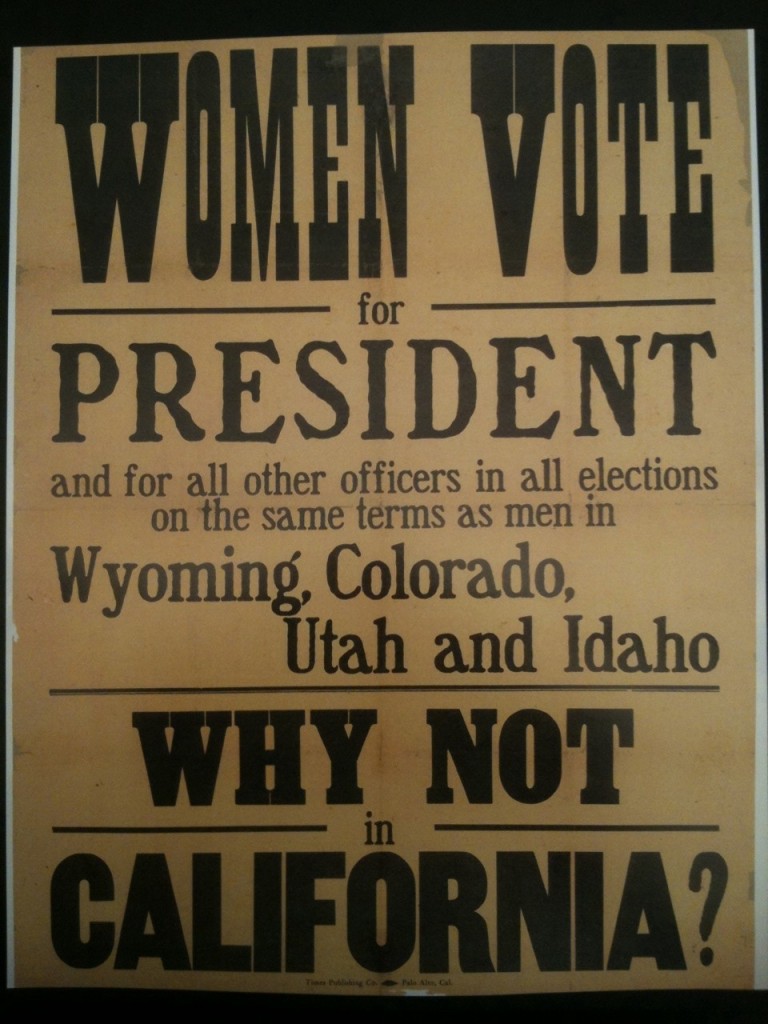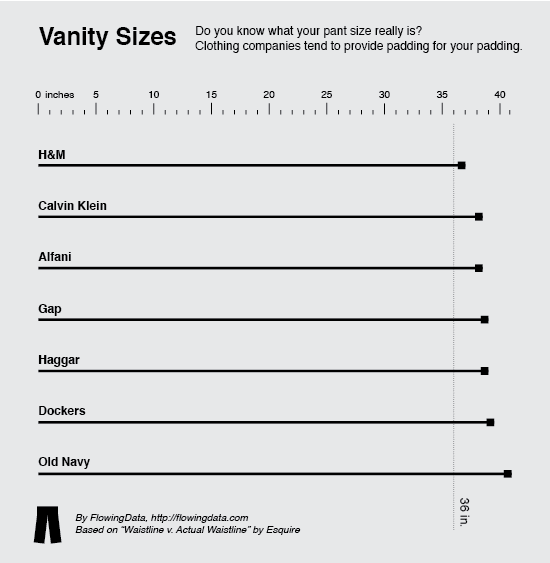Lauren S. sent us a fun illustration of the social construction of chocolate. She writes:
Dove Promises, as it happens, contain a printed message beneath their individual foil wrappings—a message which, according to the cloying copy on the back of the package, “is filled with thoughts of joy and strength, along with positive reflections that will inspire you each day”. Fair enough. Mine was some tripe about rainbows. My boyfriend’s, on the other hand, was an amusing bit of gender assumption:
So in case the name “Dove Promises,” the cursive writing, and the heart shapes didn’t give it away, Dove brand chocolate is FOR GIRLS ONLY. Notice also that Dove is commandeering pseudo-feminist notions of girl power.
Lauren also observes the interesting marketing effort in the second phrase, “You deserve this!”
I immediately thought of Jean Kilbourne’s Can’t Buy My Love… and its emphasis upon the seductive marketing of indulgent food specifically to women… the “inspiring” message was a tired re-tread of that same old idea in which food advertisers so often seem to engage: these are “women’s” foods, and the “joy and strength” you’re missing in your life can be found right here in this bit of dark, rich chocolate, so go ahead, girl, indulge. You can always throw your money at the diet industry afterward.
Thanks Lauren!
For more on the social construction of chocolate: a gender-reversed vintage ad, a contemporary gender-“reversal” in Japan, cupcakes for men, and chocolates in the tampon aisle.
Lisa Wade, PhD is an Associate Professor at Tulane University. She is the author of American Hookup, a book about college sexual culture; a textbook about gender; and a forthcoming introductory text: Terrible Magnificent Sociology. You can follow her on Twitter and Instagram.







